If you’re considering moving to Singapore or just want to learn more about the education system in this city-state, you’ve come to the right place. Singapore’s education system is known for being one of the best in the world, with a focus on developing students into lifelong learners with the skills they need to succeed in the 21st century.
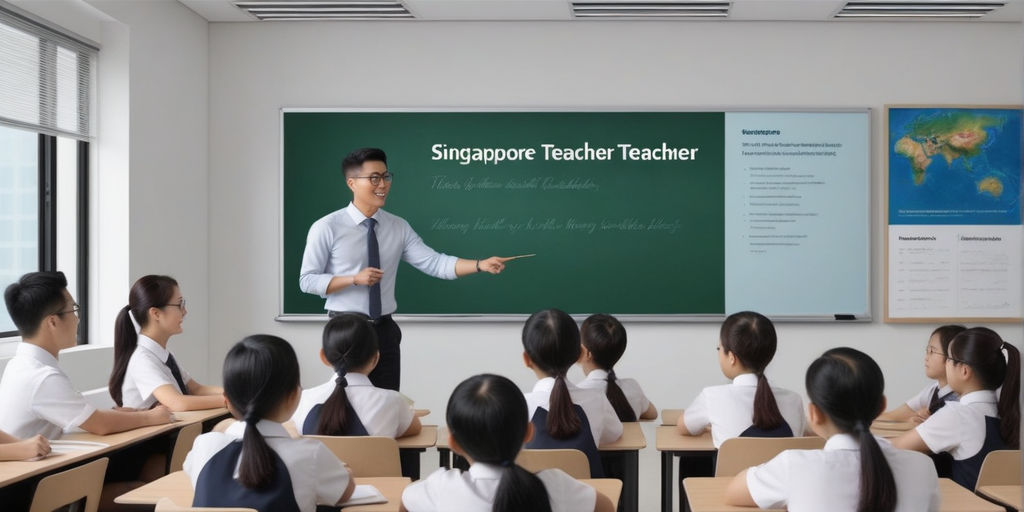
In this article, we’ll provide you with an overview of Singapore’s education landscape, from early childhood education to tertiary education. We’ll also cover additional educational considerations, such as the importance of tuition and the role of parents in their children’s education. By the end of this article, you’ll have a better understanding of what makes Singapore’s education system so successful and what challenges it faces moving forward.
Key Takeaways
- Singapore’s education system is known for its focus on developing students into lifelong learners with the skills they need to succeed in the 21st century.
- The system includes early childhood education, primary and secondary education, post-secondary pathways, and tertiary education.
- Additional educational considerations include the importance of tuition and the role of parents in their children’s education.
Overview of Singapore’s Education Landscape

If you are interested in learning about the Singapore education system, you will be impressed by the quality of education and the governmental structure that supports it. The Singapore government has made a significant investment in education, and it has paid off with a highly respected and internationally recognized educational system.
Key Stages of Education
The Singapore education system consists of six key stages of education, including:
- Primary education – six years of compulsory education for children aged 6-12.
- Secondary education – four to five years of education for students aged 13-16, leading up to the GCE O-Level examination.
- Pre-university education – two to three years of education for students aged 17-18, leading up to the GCE A-Level examination.
- Post-secondary education – a range of educational pathways for students aged 18 and above, including polytechnics, ITEs, and universities.
- Special education – specialized education for students with disabilities and special needs.
- Continuing education and training – lifelong learning opportunities for adult learners.
Governmental Structure
The Ministry of Education (MOE) is responsible for overseeing the Singapore education system. The MOE sets policies, curriculum standards, and funding for the country’s educational institutions. The MOE also works closely with schools, parents, and the community to ensure that the education system continues to meet the needs of Singaporeans.
International Recognition
The Singapore education system is highly respected internationally, with many Singaporean students going on to study at top universities around the world. Singapore has a reputation for producing high-quality graduates who are well-prepared for the workforce.
Cultural Influence on Learning
The Singapore education system places a strong emphasis on discipline, respect, and hard work. These values are deeply ingrained in Singaporean culture, and they are reflected in the way that students are taught. Teachers and students alike are expected to show respect for authority and to work hard to achieve their goals.
Overall, the Singapore education system is a model for other countries to follow. If you are considering studying in Singapore, you can be confident that you will receive a high-quality education that will prepare you for success in your chosen field.
Early Childhood Education
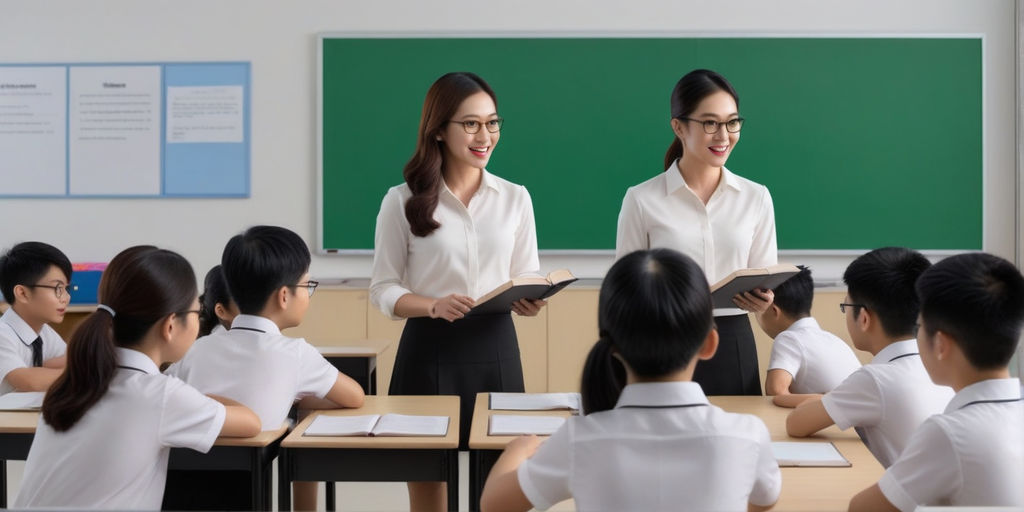
As a parent, you want to ensure that your child gets the best possible start in life, and this starts with their education. Early childhood education is an important part of your child’s development and sets the foundation for their future learning. In Singapore, the government places a high value on early childhood education and has implemented a range of policies and initiatives to support it.
Nursery and Kindergarten
Nursery and kindergarten are the two main types of preschool education in Singapore. Nursery is for children aged 2 months to 3 years, while kindergarten is for children aged 3 to 6 years. Both types of preschool education are designed to provide a safe and nurturing environment for children to learn and develop.
The Ministry of Education (MOE) oversees the development of preschool education in Singapore, and has introduced the Nurturing Early Learners (NEL) Framework to guide preschool curriculum development. The NEL Framework is based on research and best practices in early childhood education, and is designed to provide a holistic and developmentally appropriate curriculum for young children.
Primary School Preparation
Preparing for primary school is an important part of early childhood education in Singapore. The MOE has introduced the Primary 1 Registration Exercise to ensure that all children have a place in a primary school. The exercise takes place annually in July, and parents are required to register their child for primary school during this time.
To prepare for primary school, children in kindergarten are taught a range of skills and knowledge that will help them succeed in primary school. This includes developing their literacy and numeracy skills, as well as their social and emotional skills. Kindergarten teachers also work closely with parents to ensure that children are well-prepared for primary school.
Overall, early childhood education in Singapore is designed to provide a strong foundation for children’s future learning and development. With a focus on holistic development and a commitment to quality education, Singapore’s early childhood education system is one of the best in the world.
Primary Education
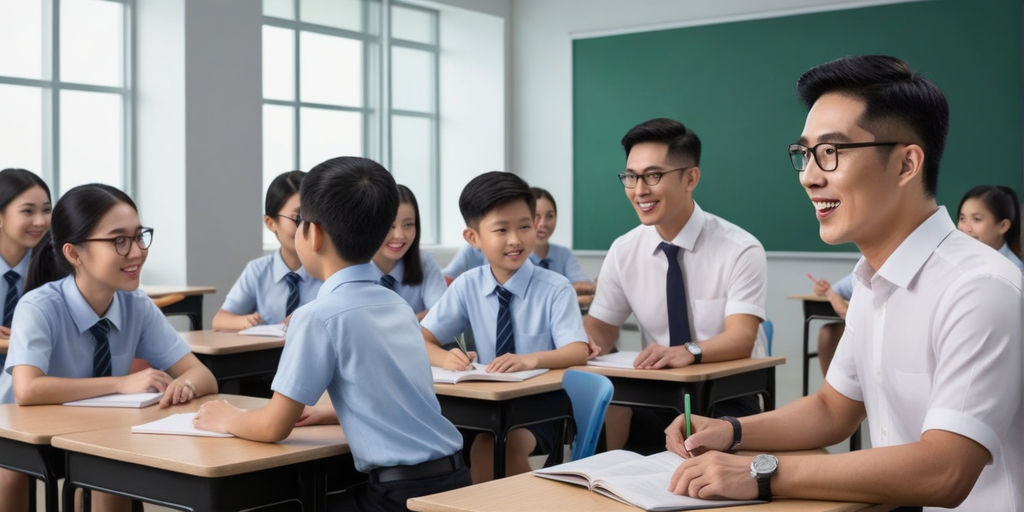
If you are a parent in Singapore, you will be thrilled to know that the primary education system is designed to give your child a strong foundation in literacy, numeracy, and character-building. The primary education system in Singapore is compulsory and lasts for six years.
Primary School Curriculum
The primary school curriculum is designed to develop your child’s critical thinking, problem-solving, and creativity skills. It includes four main subjects: English Language, Mother Tongue Language, Mathematics, and Science. Additionally, your child will also learn Civics and Moral Education, Physical Education, and Art and Music.
Primary School Leaving Examination (PSLE)
The Primary School Leaving Examination (PSLE) is an important milestone for every student in Singapore. The PSLE is a national examination that assesses your child’s proficiency in English Language, Mother Tongue Language, Mathematics, and Science. The results of the PSLE determine the secondary school your child will attend.
Co-Curricular Activities (CCAs)
Co-Curricular Activities (CCAs) are an integral part of the primary education system in Singapore. CCAs are designed to help your child discover their talents and interests. Your child can choose from a wide range of CCAs, including sports, music, dance, and drama. CCAs provide your child with opportunities to develop their leadership, teamwork, and communication skills.
In conclusion, the primary education system in Singapore is designed to provide your child with a strong foundation in literacy, numeracy, and character-building. The curriculum is designed to develop your child’s critical thinking, problem-solving, and creativity skills. The PSLE is an important milestone that assesses your child’s proficiency in key subjects. CCAs provide your child with opportunities to discover their talents and interests and develop their leadership, teamwork, and communication skills.
Secondary Education
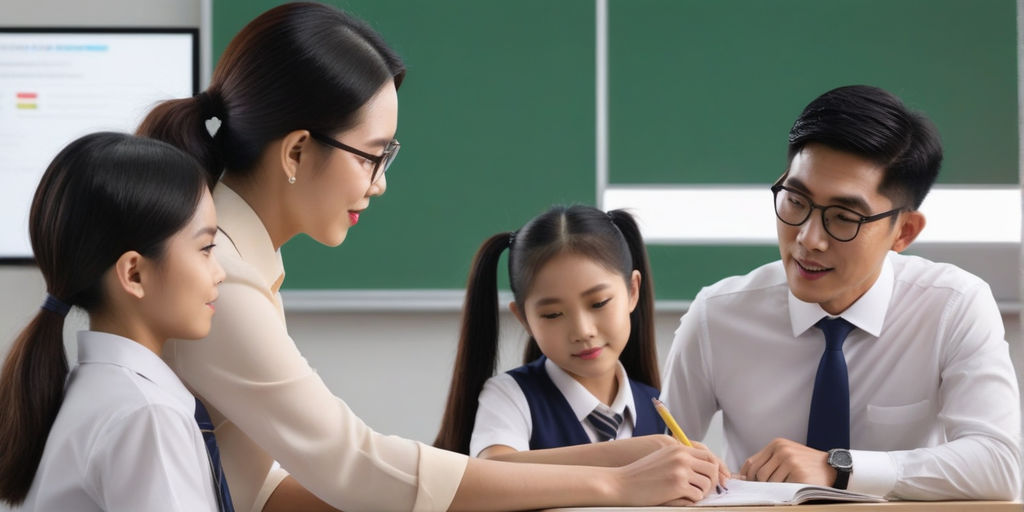
As a student in Singapore, secondary education is an essential part of your academic journey. This stage of education is compulsory for all students aged 12 to 16. In this section, we will explore the structure of secondary education, specialised programmes and courses, and secondary school assessment.
Secondary School Structure
At the secondary level, you will find three courses designed to match your academic progress and interests. These courses are Express, Academic, and Technical. The Express Course is a four-year course leading to the Singapore-Cambridge General Certificate of Education (GCE) O-Level exam. Students learn English, Mother Tongue, Mathematics, Science, Humanities, and one other subject. The Academic Course is a five-year course that includes the same subjects as the Express Course, but with a broader range of electives. The Technical Course is a five-year course that focuses on hands-on training in various fields such as engineering, hospitality, and business.
Specialised Programmes and Courses
In addition to the three general courses, there are specialised programmes and courses available to students. These programmes include the Integrated Programme (IP), the Normal (Academic) Course, and the Normal (Technical) Course. The Integrated Programme is a six-year course leading to the GCE exam at A-Level Examination, International Baccalaureate Diploma, or NUS High School Diploma. The Normal (Academic) Course is a four-year course that prepares students for the GCE O-Level exam. The Normal (Technical) Course is a four-year course that prepares students for technical courses at the Institute of Technical Education (ITE).
Secondary School Assessment
Assessment is an integral part of secondary education in Singapore. Secondary 1 students will take a common examination in the middle of the year, while Secondary 2 and 3 students will take mid-year and end-of-year examinations. Secondary 4 and 5 students will take the GCE O-Level exam. The O-Level exam is a high-stakes exam that determines a student’s eligibility for admission to junior colleges, polytechnics, and ITE.
In conclusion, secondary education in Singapore is a crucial stage of your academic journey. With a range of courses and programmes available, you can choose a path that matches your academic progress and interests. Assessment is an integral part of secondary education, and it is essential to prepare for the GCE O-Level exam to ensure your future academic success.
Post-Secondary Pathways
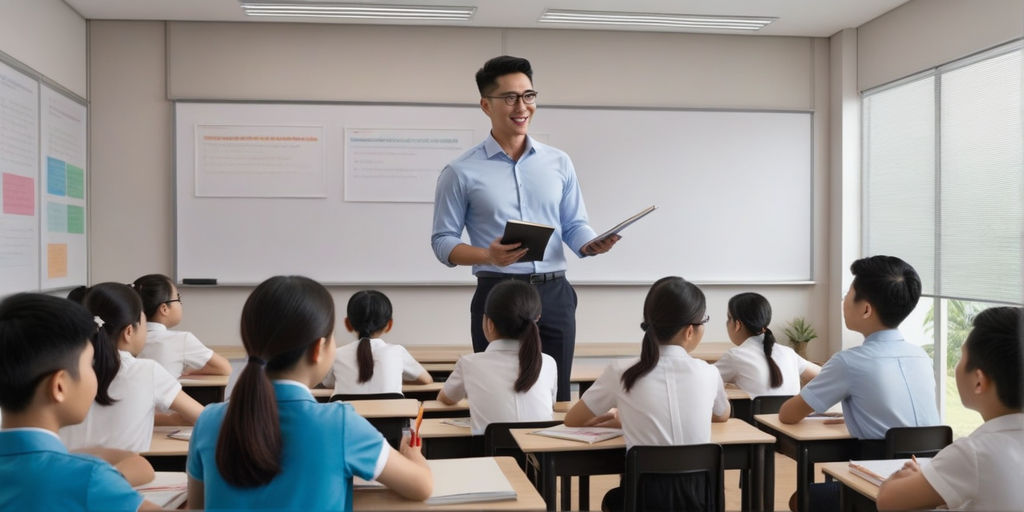
Congratulations on completing your secondary school education! The next step in your academic journey is post-secondary education. There are several pathways to choose from, depending on your interests and strengths.
Junior Colleges and Pre-University
If you are interested in pursuing a university education, junior colleges and pre-university programmes are a great choice. These programmes offer a broad-based education and prepare you for university-level studies. Junior colleges offer a two-year programme, while pre-university programmes are offered by polytechnics and last for three years.
Polytechnics and Technical Education
Polytechnics and the Institute of Technical Education (ITE) offer a range of courses that focus on practical skills and hands-on learning. These courses are designed to prepare you for the workforce, and many of them offer industry attachments and internships. Polytechnics offer three-year diploma courses, while ITE offers a range of courses that last from six months to three years.
International Baccalaureate and Integrated Programmes
If you are interested in a more holistic education, you may want to consider the International Baccalaureate (IB) or integrated programmes. These programmes offer a broad-based education and focus on developing critical thinking and problem-solving skills. IB programmes are offered by international schools and some junior colleges, while integrated programmes are offered by some secondary schools.
In conclusion, post-secondary education offers a range of pathways to choose from, depending on your interests and strengths. Whether you are interested in pursuing a university education, developing practical skills, or a more holistic education, there is a pathway that is right for you.
Tertiary Education
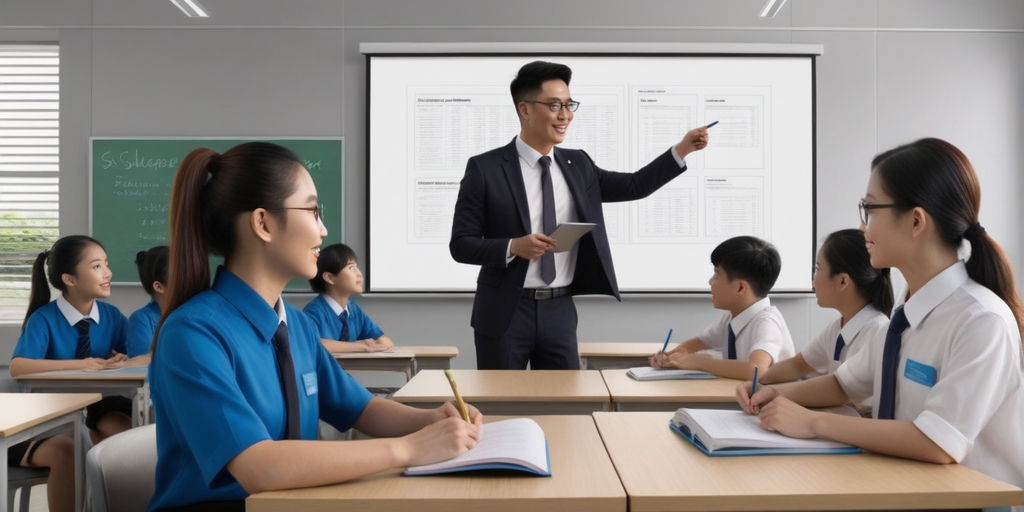
Congratulations on reaching the tertiary education stage! This is an exciting time for you as you will be able to choose a course of study that aligns with your passion and interests. In Singapore, tertiary education is divided into four levels: Institute of Technical Education, Polytechnics, Public Universities and Private Institutions.
Universities in Singapore
Singapore has six autonomous universities, which are publicly funded and offer a wide range of undergraduate and postgraduate programmes. These universities are National University of Singapore (NUS), Nanyang Technological University (NTU), Singapore Management University (SMU), Singapore University of Technology and Design (SUTD), Singapore Institute of Technology (SIT) and Singapore University of Social Sciences (SUSS).
NUS and NTU are the two most prestigious universities in Singapore and are consistently ranked among the top universities in Asia and the world. They offer a wide range of courses, from business and engineering to medicine and law. SMU, on the other hand, is known for its business programmes and is one of the top business schools in Asia.
Specialised Institutes and Scholarships
Apart from universities, there are also specialised institutes in Singapore that offer niche programmes. For example, the Nanyang Academy of Fine Arts (NAFA) and Lasalle College of the Arts offer programmes in the arts, while the Singapore Sports School offers programmes in sports.
If you are an international student, you may be eligible for scholarships offered by the universities or government agencies. These scholarships can help to offset the cost of tuition fees and living expenses. Some of the scholarships available include the Singapore Government Scholarship, ASEAN Scholarship and Nanyang Scholarship.
In conclusion, Singapore’s tertiary education system offers a wide range of options for students to pursue their academic interests. Whether you choose to attend a public university or a private institution, there are plenty of opportunities available for you to excel in your chosen field of study.
Additional Educational Considerations

As a parent, there are additional educational considerations that you may need to keep in mind when it comes to your child’s education in Singapore. In this section, we will discuss some of these considerations, including school fees and financial assistance, support for non-citizens, and private tuition and supplementary education.
School Fees and Financial Assistance
Singapore’s education system is known for its high standards, but it can also be expensive. As a Singapore PR or expat, you may need to pay higher school fees than citizens. In addition to tuition fees, there may also be miscellaneous fees for things like textbooks, uniforms, and transport.
Fortunately, the Singapore government provides financial assistance schemes to help families who may need it. These schemes include subsidies, bursaries, and loans. To find out more about these schemes and whether you are eligible, you can visit the Ministry of Education’s website.
Support for Non-Citizens
If you are a non-citizen, you may be concerned about the level of support that your child will receive in Singapore’s education system. Rest assured that the government is committed to providing a high-quality education for all students, regardless of their nationality.
In fact, the Ministry of Education has set up a dedicated unit to support the needs of non-citizen students. This unit provides assistance with things like enrolment, visa applications, and settling into life in Singapore.
Private Tuition and Supplementary Education
If you feel that your child needs additional support beyond what is provided by their school, you may want to consider private tuition or supplementary education. Private tuition involves hiring a private tutor to provide one-on-one support for your child, while supplementary education involves enrolling your child in additional classes or programmes outside of school hours.
Private tuition can be expensive, but it can also be a good investment in your child’s education. It allows them to receive personalised attention and support, which can help them to excel in their studies. If you are considering private tuition, be sure to do your research and choose a reputable tutor or tuition centre.
In summary, as a parent in Singapore’s education system, you may need to consider school fees and financial assistance, support for non-citizens, and private tuition and supplementary education. By staying informed and making informed decisions, you can help your child to get the most out of their education in Singapore.
Challenges and Future Directions
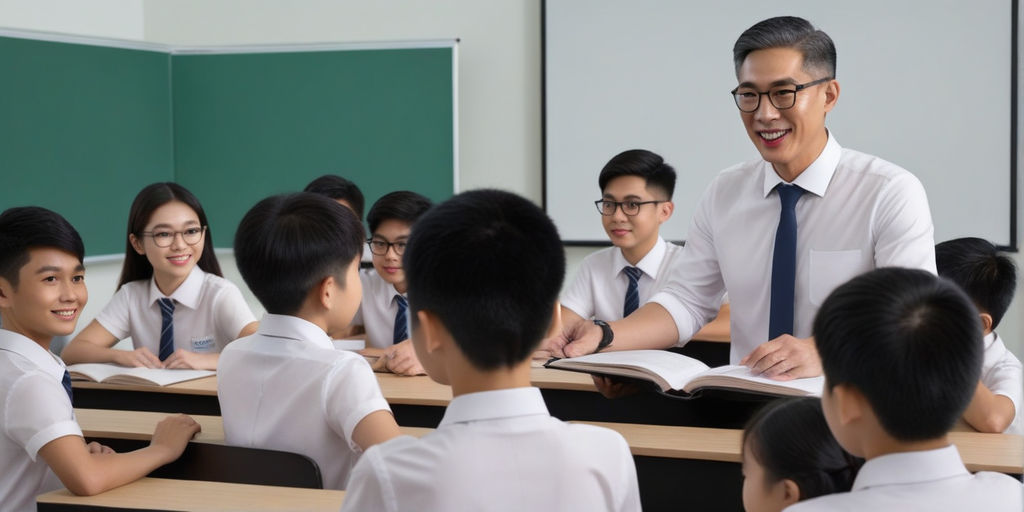
As the Singapore education system continues to evolve, it faces a number of challenges and must adapt to future trends to remain relevant. Here are some of the key issues that need to be addressed:
Stress and Mental Wellbeing
The education system in Singapore is known for being rigorous and demanding, which can lead to high levels of stress and anxiety among students. To address this issue, schools are increasingly focusing on building resilience and promoting mental wellbeing. For example, the removal of weighted assessments for primary school students and mid-year examinations for secondary school students is aimed at reducing the pressure on students.
Adapting to Global Education Trends
As the world becomes more interconnected, it is important for the Singapore education system to keep pace with global trends. This includes embracing new technologies, such as online learning platforms and artificial intelligence, and incorporating more interdisciplinary and project-based learning approaches. It also means preparing students for a more diverse and multicultural world, and providing opportunities for overseas study and exchange programmes.
Fostering Innovation and Talents
To maintain its competitive edge, Singapore must continue to foster innovation and develop the talents of its students. This includes encouraging entrepreneurship and creativity, and providing opportunities for students to pursue their passions and interests. The late Lee Kuan Yew, Singapore’s founding father, recognised the importance of nurturing talent and famously said, “If you deprive yourself of outsourcing and your competitors do not, you’re putting yourself out of business.”
Overall, the Singapore education system is constantly evolving to meet the needs of students, employers and society as a whole. By addressing these challenges and embracing future trends, it can continue to produce students who are well-equipped to reach their full potential and contribute to the country’s success.
Conclusion
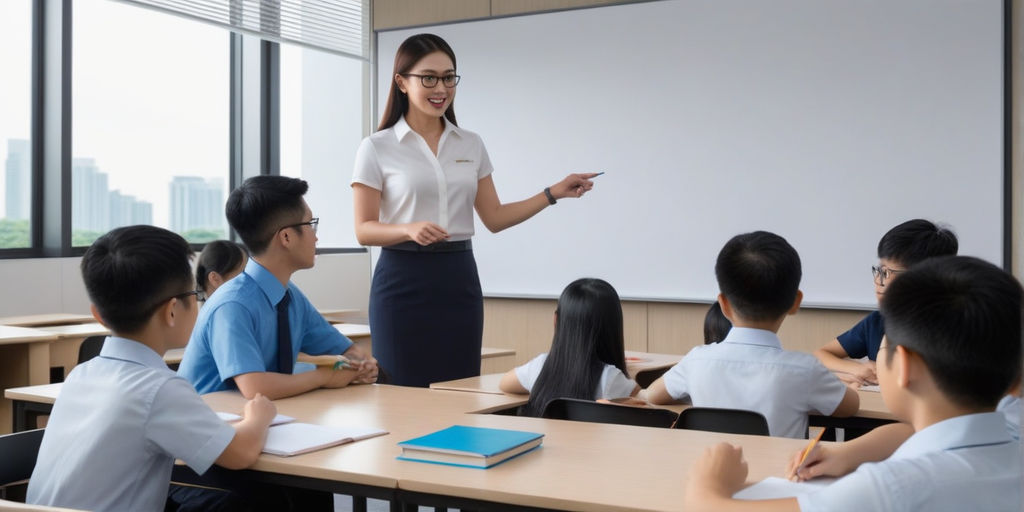
Now that you have learned all about the Singapore education system, you can see why it is considered one of the best in the world. With its focus on holistic development, strong foundation in literacy and numeracy, and diverse learning experiences, students are well-equipped to succeed both academically and in life.
One of the most impressive aspects of the Singapore education system is its emphasis on the importance of education. The government invests heavily in education, and parents are highly involved in their children’s education. This dedication to education has paid off, as Singapore consistently ranks among the top countries in international education assessments.
Another strength of the Singapore education system is its focus on developing well-rounded individuals. Students are not just taught academic subjects, but also physical, aesthetic, moral, social, and emotional aspects. This helps students to develop a broad range of skills and qualities that will serve them well in their future careers and personal lives.
Overall, the Singapore education system is a shining example of what can be achieved with a strong focus on education and a commitment to developing well-rounded individuals. Whether you are a student, parent, or educator, there is much to learn from the Singapore education system and its successes.
Frequently Asked Questions

What are the distinctive features of the Singaporean school curriculum?
The Singaporean school curriculum is known for its rigorous and comprehensive approach to education. It is designed to provide students with a strong foundation in literacy and numeracy, as well as a well-rounded education that includes physical, aesthetic, moral, social and emotional aspects. The curriculum is based on the principle of “Teach Less, Learn More”, which encourages teachers to focus on quality over quantity and to use innovative teaching methods to engage students.
How does the education system in Singapore cater to international students?
The education system in Singapore is open to international students, and there are many schools that offer programmes specifically designed for them. These programmes are designed to help international students adapt to the Singaporean education system and culture, and to provide them with the support they need to succeed. International students are also encouraged to participate in extracurricular activities and community service projects, which help them to integrate into the local community.
What levels of education are offered within the Singaporean schooling framework?
The Singaporean schooling framework is divided into four levels: pre-school, primary, secondary, and post-secondary. Pre-school education is non-compulsory, while primary and secondary education are compulsory for all Singaporean citizens and permanent residents. Post-secondary education includes vocational and technical training, as well as university education.
Can you highlight the advantages and disadvantages of studying in Singapore?
Studying in Singapore has many advantages, including access to a high-quality education system, exposure to a diverse and multicultural environment, and the opportunity to learn from some of the best teachers and researchers in the world. However, there are also some disadvantages, such as the high cost of living and the intense competition for places in top schools and universities.
What educational policies underpin the success of Singapore’s schools?
The success of Singapore’s schools is underpinned by a range of educational policies, including a focus on meritocracy, a strong emphasis on teacher training and development, and a commitment to continuous improvement and innovation. The government also invests heavily in education, with a significant portion of the national budget allocated to education and training.
At what age do children typically start their schooling journey in Singapore?
Children in Singapore typically start their schooling journey at the age of six, when they enter primary school. However, there are also pre-school programmes available for children as young as three years old, which provide them with a strong foundation in literacy and numeracy, as well as social and emotional development.

